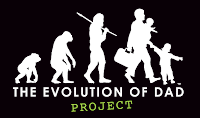Next semester, instead of doing a webinar (or bloginar, rather), I am taking the “Making It Pop: Translating Your Research for Trade” workshop on the road. Here’s the description, which I’m happy to email to folks interested in passing it along to their departments or organizations as an attachment:
“Making It Pop: Translating Your Research for Trade,â€
with author/blogger/journalist Deborah Siegel, PhD
Are you an academically-inclined writer who wishes to extend your reach? A researcher who longs to write something other than tenure reviews and grant proposals? A scholar who dreams of publishing a popular (“tradeâ€) book, a magazine article, or even an op-ed? You’re not alone.
Too often, in addition to the standard institutional obstacles, academically-trained writers encounter obstacles to writing for popular audiences for which they are unprepared. To write for popular media in a competitive publishing climate, you must be able to craft engaging, accessible, non-technical prose that appeals to an audience far outside your area of expertise. These skills can be learned.
The Making It Pop Workshop takes the Making It Pop Webinar on the road. This 2-3 hour on-site workshop is designed to help researchers, scholars, and policy “wonks” bridge the translation gap and is tailored to meet participants’ needs. Participants are encouraged to come with ideas for research- or policy-based stories they aspire to turn into books and/or articles for hands-on workshopping.
Each workshop covers:
• Techniques for de-jargonizing and enlivening your prose
• Common pitfalls academic writers make when trying to write for popular audiences
• Why “making it pop†does not mean “dumbing it down†or “selling out,†and how to deal with institutional scorn
Tailored Options (each workshop can cover 1-2):
A. Writing a Book Proposal That Sells
• The difference between a book proposal for an academic press and a trade (or commercial) press
• How to know whether your book idea has commercial potential
• What’s entailed in rewriting a dissertation into a trade book
• The elements of a strong book proposal
• The importance of narrative, and what else editors look for
• The role of an agent
B. Publishing Shorter Pieces
• Genres for shorter writings (features, profiles, op-eds)
• How to submit pitches to newspapers and magazines
• How to work with a newspaper or magazine editor
C. Of Books and Blogs
• How to start a blog and/or participate in a blog community as a way to create a platform for your book
• Other ways to use the Internet to help promote your book
See what past participants have said about the workshop here. For additional information or to book, please contact Taryn Kutujian at taryn.kutujian@gmail.com.





